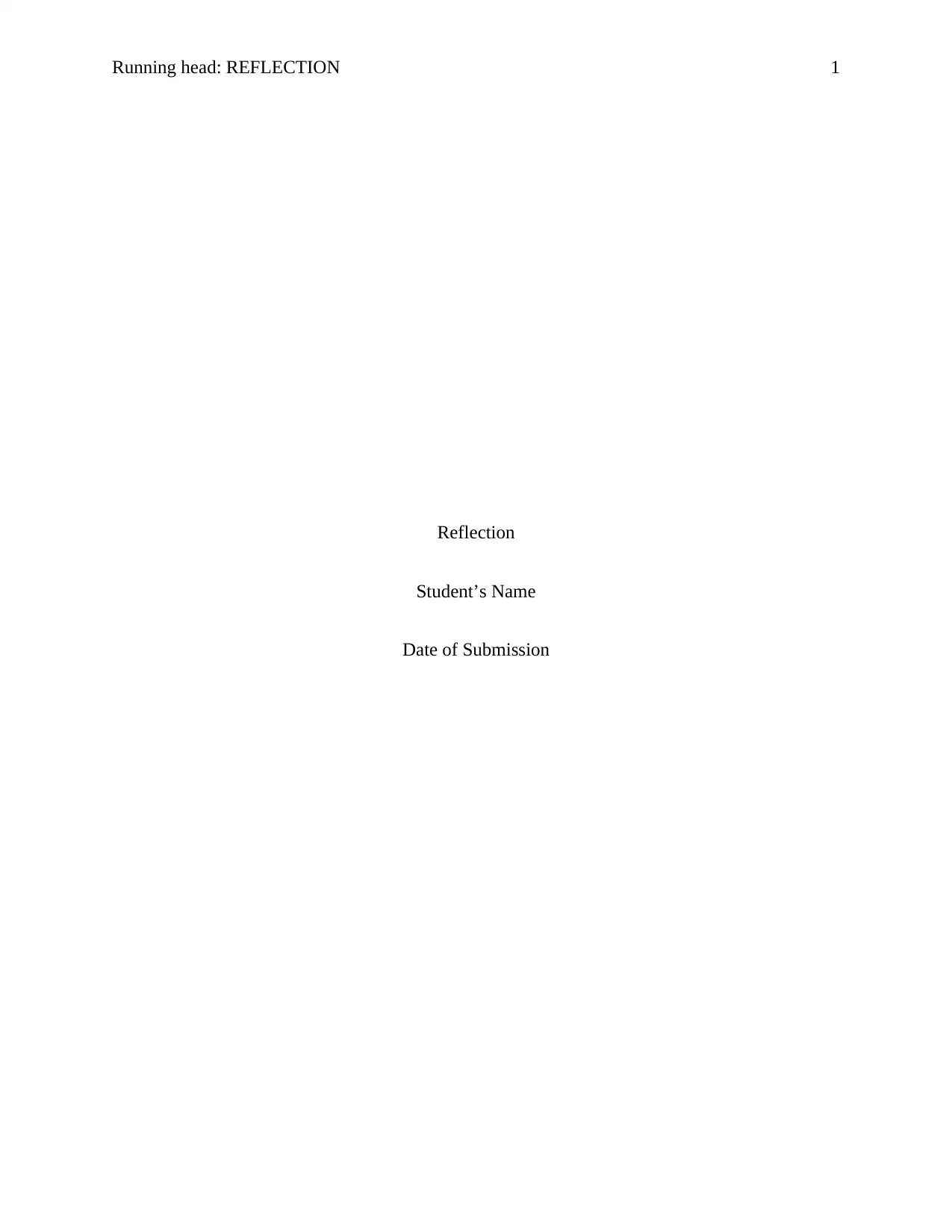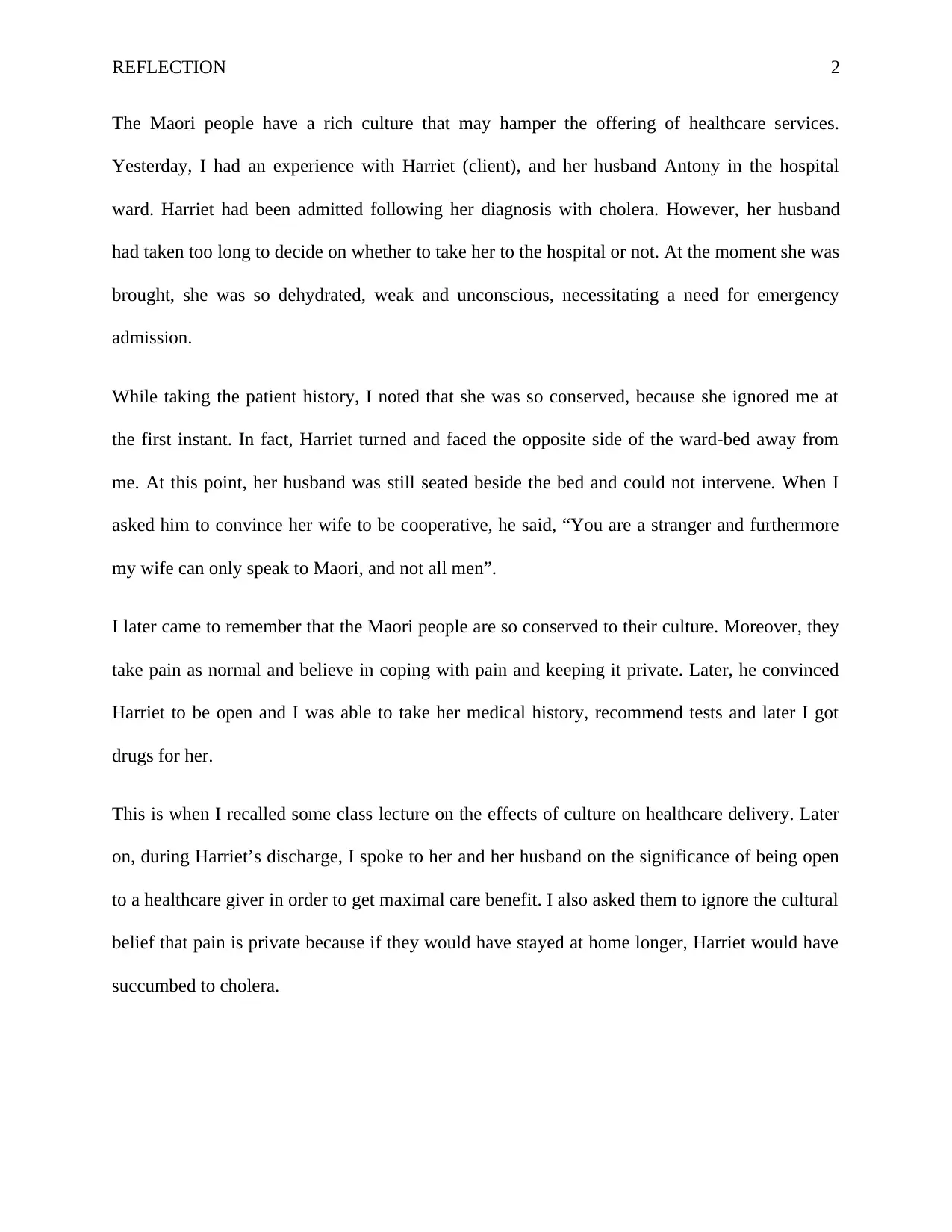The Impact of Culture on Healthcare Delivery: A Reflection
VerifiedAdded on 2020/04/21
|2
|342
|58
Report
AI Summary
This report examines the influence of culture on healthcare delivery, using a case study involving a patient of Maori descent. The author reflects on a personal experience where cultural differences impacted patient care, specifically regarding communication and the patient's reluctance to share medical history. The report highlights the importance of cultural sensitivity in healthcare, emphasizing how cultural beliefs can affect patient behavior and treatment outcomes. The author discusses the challenges of overcoming cultural barriers, the significance of effective communication, and the need for healthcare providers to understand and respect diverse cultural practices to provide optimal care. The report concludes with a reflection on the importance of patient education and the role of healthcare professionals in bridging cultural gaps to ensure effective and ethical patient care.
1 out of 2








![[object Object]](/_next/static/media/star-bottom.7253800d.svg)